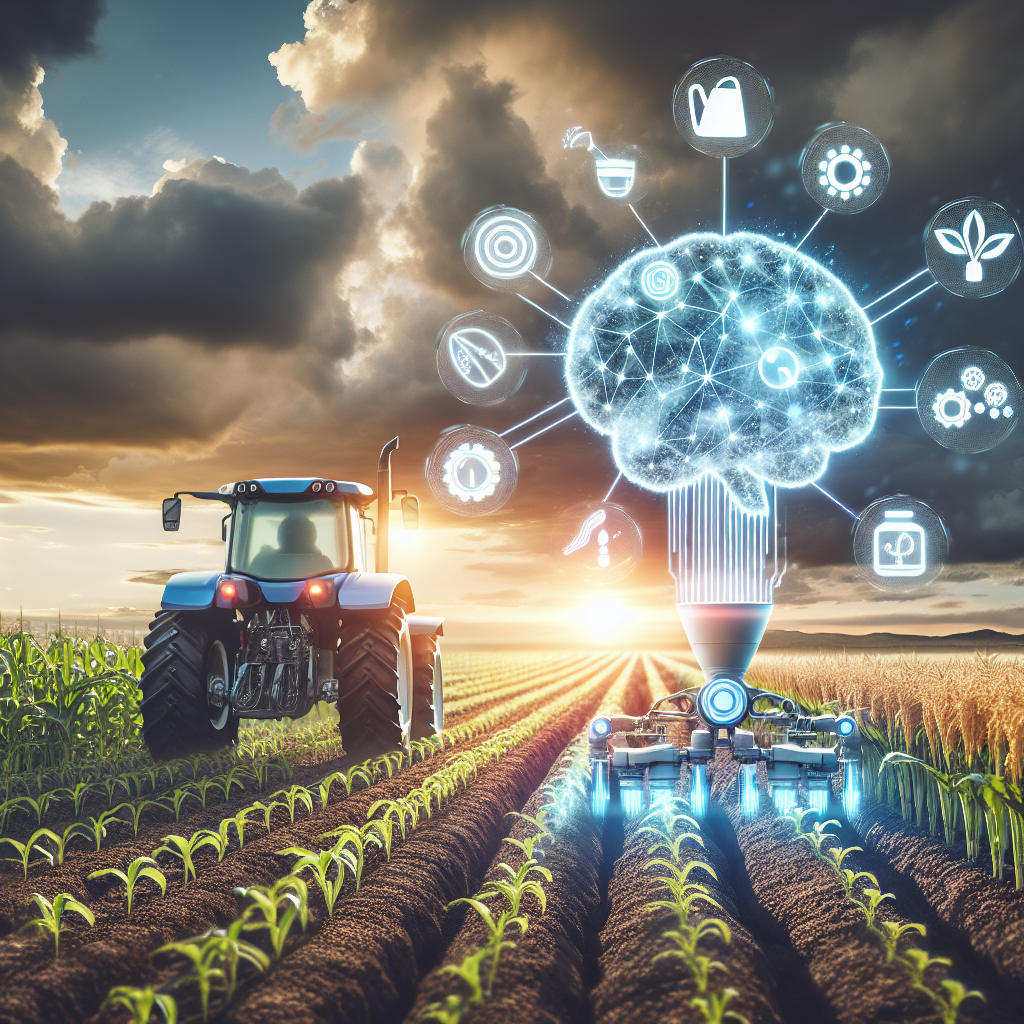Artificial Intelligence (AI) has been making waves across various industries, revolutionizing the way tasks are performed and decisions are made. In the agriculture sector, AI has the potential to significantly impact food production and sustainability. While AI offers numerous benefits such as increased efficiency, improved crop yields, and reduced labor costs, there are also risks associated with its implementation. In this article, we will explore the risks of AI in agriculture and its impact on food production and sustainability.
Impact of AI in Agriculture
AI technology has the ability to transform the agriculture industry by providing farmers with real-time data and insights to make informed decisions. AI-powered systems can analyze large amounts of data collected from various sources such as sensors, drones, satellites, and weather forecasts to help farmers optimize their crop production. This includes monitoring soil conditions, predicting crop yields, detecting diseases and pests, and managing irrigation and fertilizer application.
One of the key benefits of AI in agriculture is its potential to increase productivity and efficiency. By using AI-powered tools, farmers can automate time-consuming tasks such as monitoring crops and livestock, analyzing data, and making decisions. This not only saves time and labor costs but also allows farmers to make more informed decisions that can lead to higher crop yields and better quality produce.
In addition to improving productivity, AI can also help farmers reduce their environmental impact and promote sustainability. By using AI-powered systems to monitor soil and weather conditions, farmers can optimize their use of resources such as water, fertilizers, and pesticides. This not only reduces waste but also minimizes the negative impact of agriculture on the environment.
Risks of AI in Agriculture
While AI has the potential to revolutionize the agriculture industry, there are also risks associated with its implementation. One of the main concerns is the potential for job displacement as AI-powered tools and systems automate tasks that were previously performed by human labor. This could lead to job losses in the agriculture sector, especially for low-skilled workers who may not have the necessary skills to work with AI technology.
Another risk of AI in agriculture is the potential for data privacy and security breaches. As farmers rely on AI-powered systems to collect and analyze data, there is a risk that sensitive information could be exposed or misused by malicious actors. This could have serious implications for farmers, as their data could be used for purposes such as fraud, identity theft, or corporate espionage.
Furthermore, there is a risk that AI-powered systems could malfunction or make errors that could have a negative impact on food production and sustainability. For example, if a system incorrectly detects a disease or pest infestation, farmers could end up wasting resources on unnecessary treatments or risk losing their crops. Additionally, if an AI system is hacked or manipulated, it could lead to inaccurate data analysis and decision-making, which could have serious consequences for farmers and the environment.
FAQs
Q: How can farmers mitigate the risks of AI in agriculture?
A: Farmers can mitigate the risks of AI in agriculture by implementing robust cybersecurity measures to protect their data and systems from potential threats. They can also ensure that they have backup plans in place in case AI systems malfunction or make errors. Additionally, farmers can invest in training and education to equip themselves with the necessary skills to work with AI technology effectively.
Q: What are the ethical considerations of using AI in agriculture?
A: Ethical considerations of using AI in agriculture include concerns about data privacy, job displacement, and the potential for bias in AI algorithms. Farmers and policymakers need to address these issues to ensure that AI technology is used responsibly and ethically in the agriculture sector.
Q: How can AI help promote sustainability in agriculture?
A: AI can help promote sustainability in agriculture by optimizing the use of resources such as water, fertilizers, and pesticides. By using AI-powered systems to monitor soil and weather conditions, farmers can reduce waste and minimize their environmental impact. Additionally, AI can help farmers make more informed decisions that can lead to higher crop yields and better quality produce, ultimately promoting sustainability in the agriculture sector.
In conclusion, AI has the potential to revolutionize the agriculture industry by increasing productivity, efficiency, and sustainability. However, there are risks associated with its implementation, including job displacement, data privacy and security breaches, and the potential for errors and malfunctions. Farmers and policymakers need to address these risks and ensure that AI technology is used responsibly and ethically in the agriculture sector. By mitigating these risks, AI has the potential to drive innovation and transform the way food is produced and sustained for future generations.

